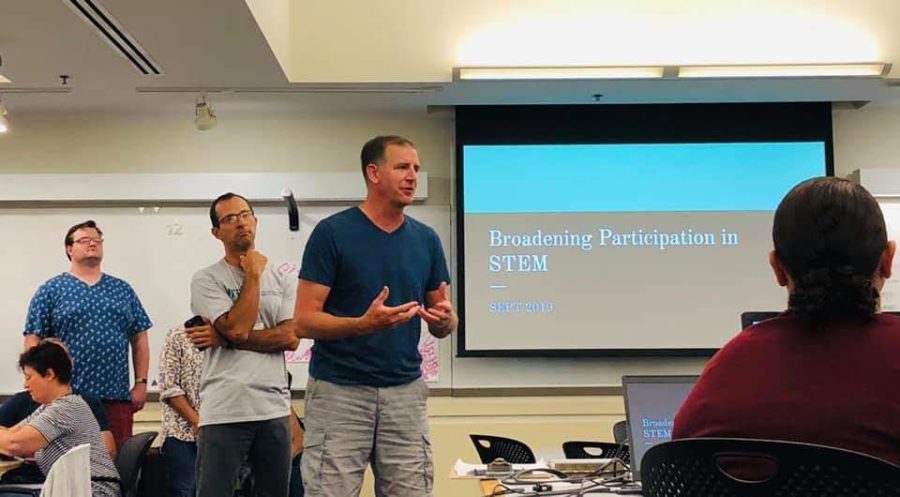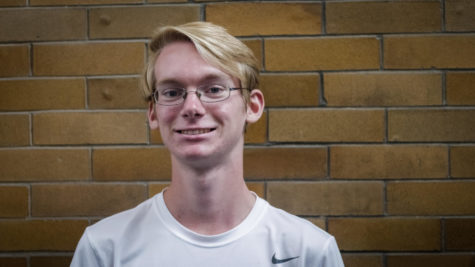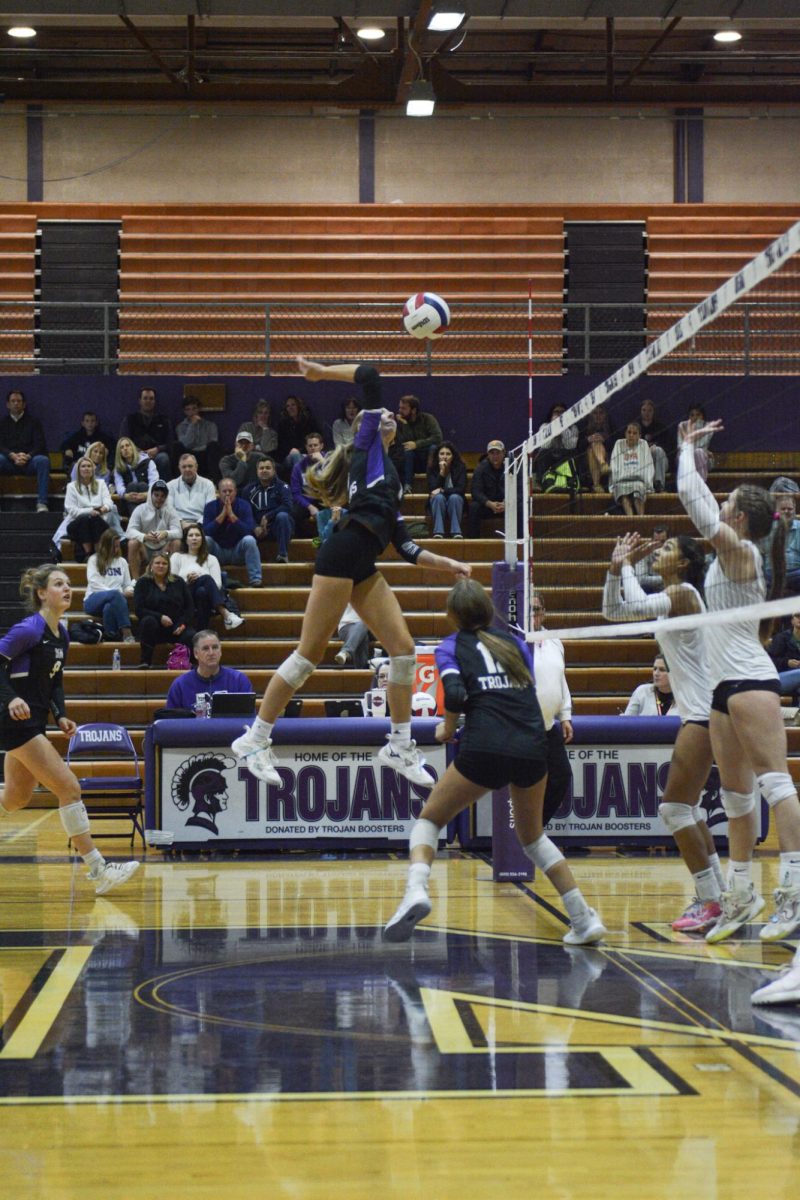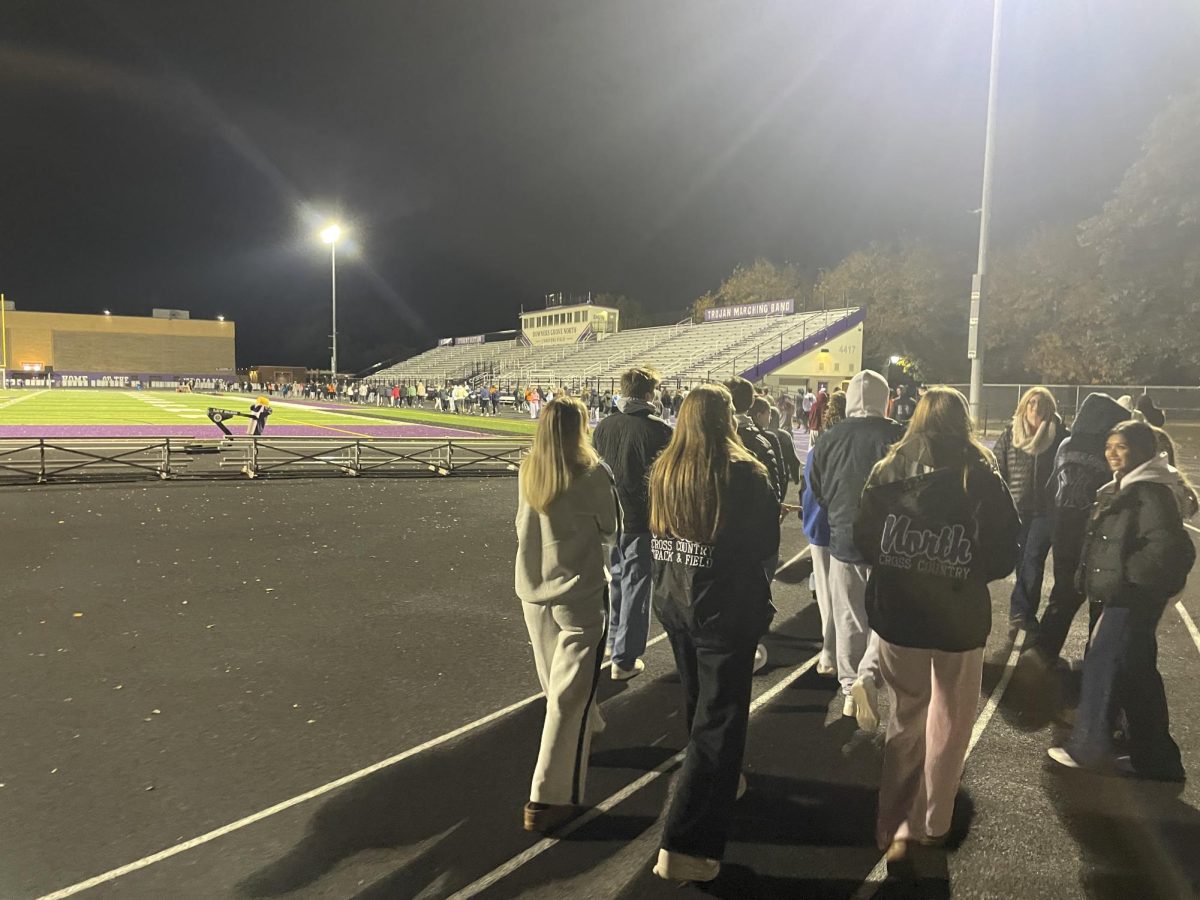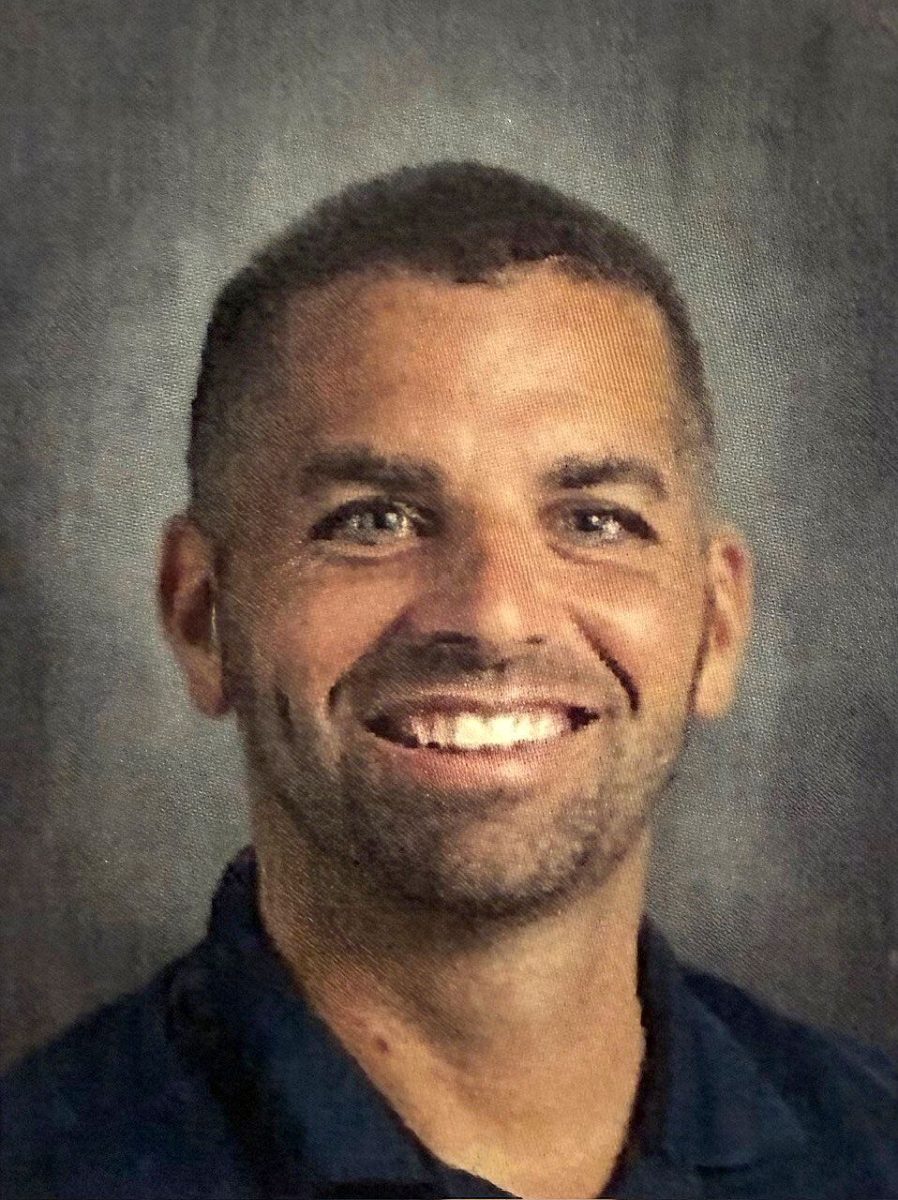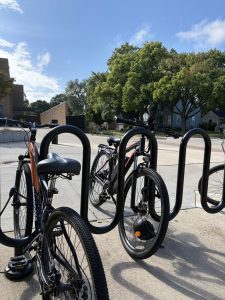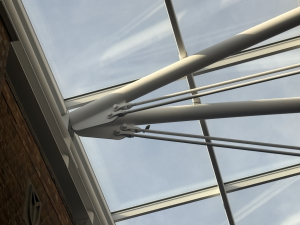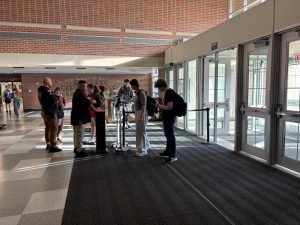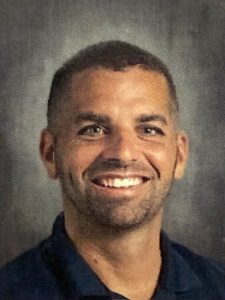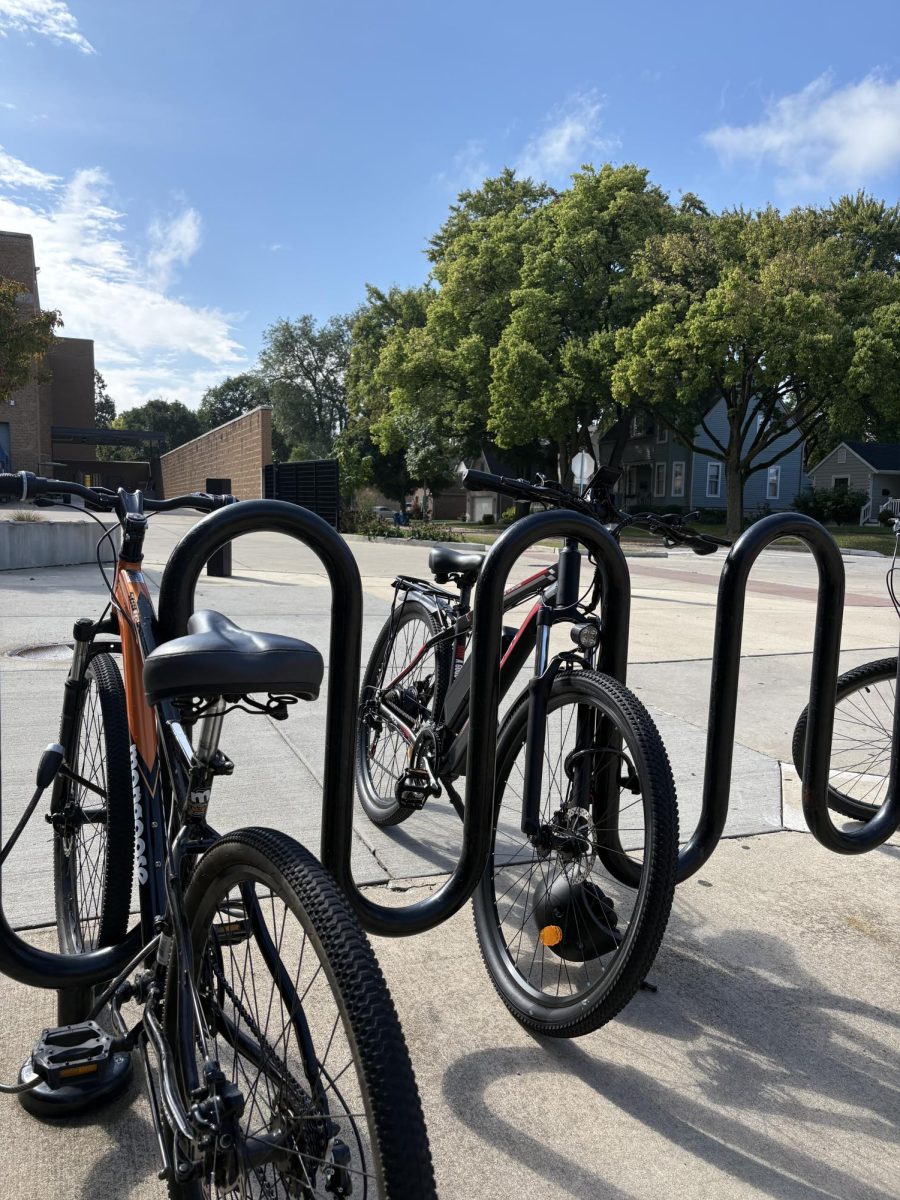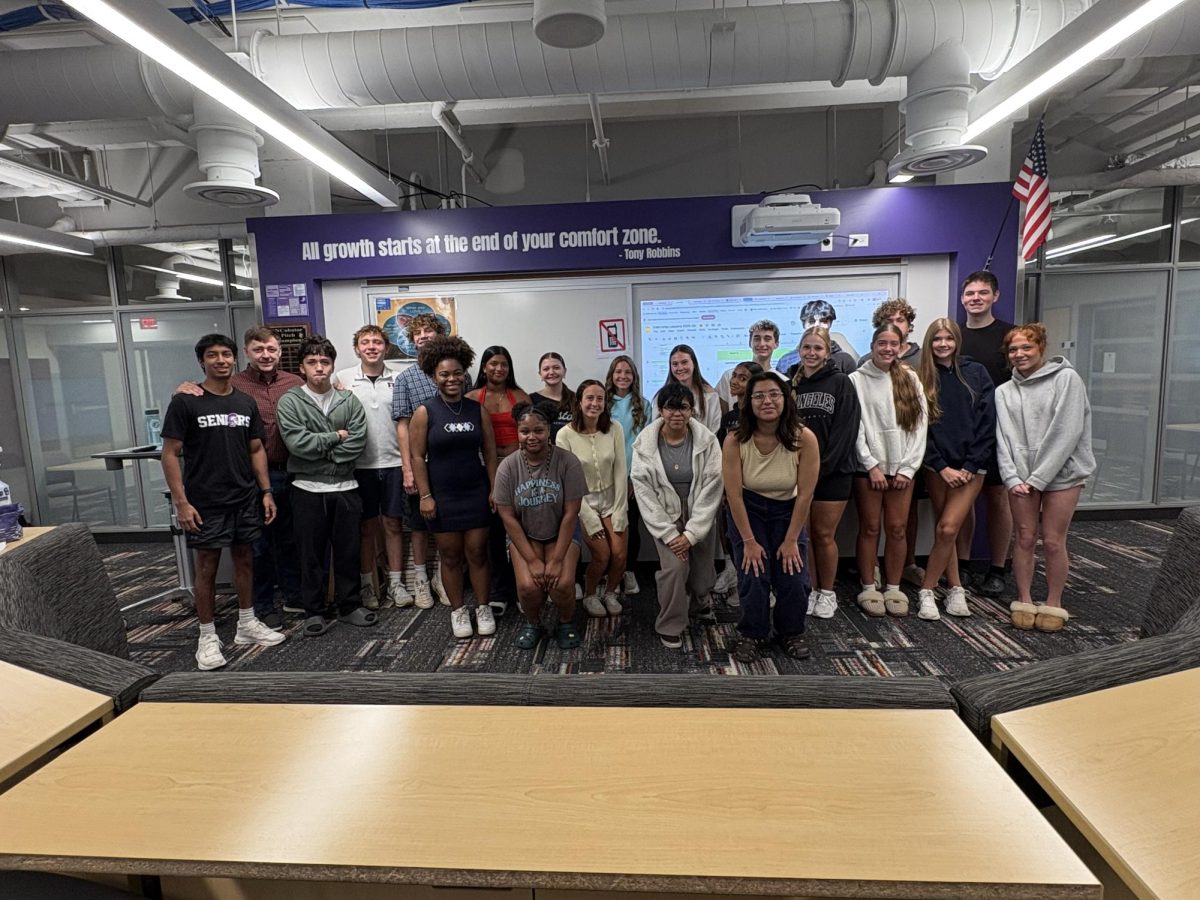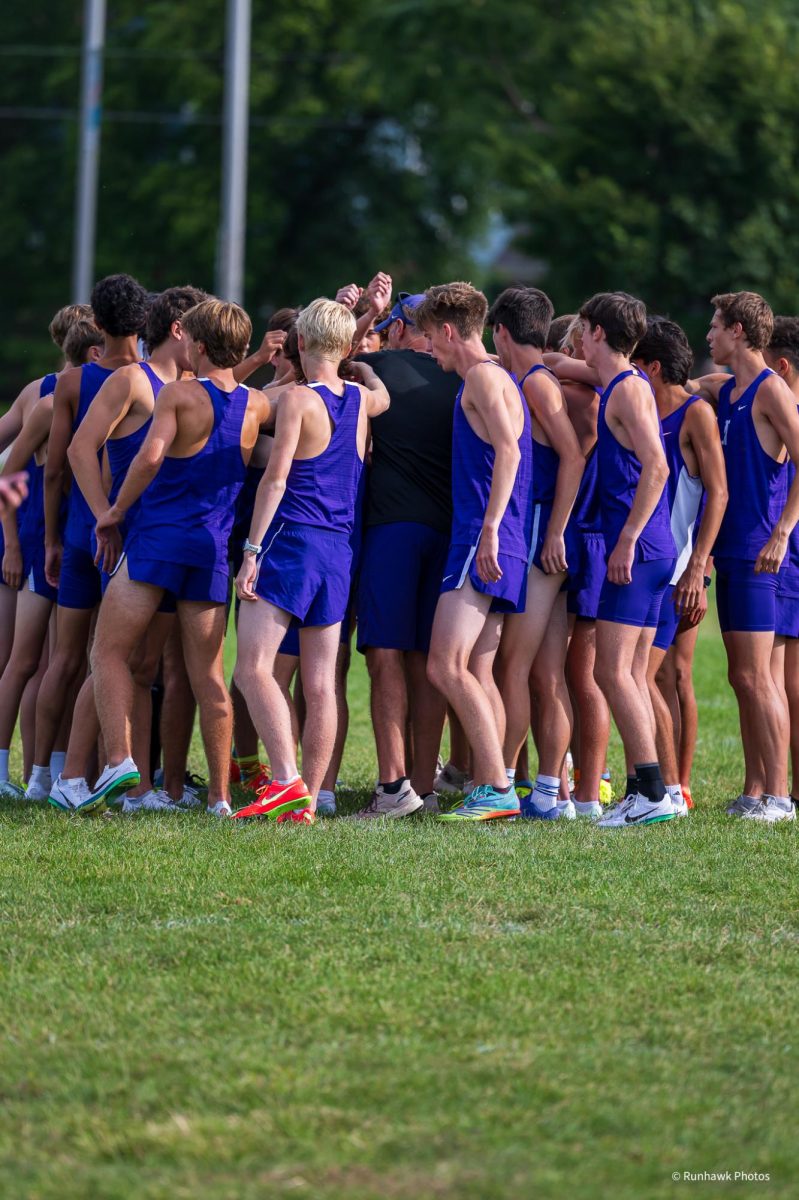MIT conference discusses climate change
Photo Courtesy of Michael Heinz
EXPANDING OPPORTUNITIES: Heinz works with a group to present on broadening participation in STEM.
September 24, 2019
For department chair Michael Heinz, spending a week at one of the country’s biggest private research institutions made for an unforgettable trip. Heinz recently attended the 30th annual Science and Engineering Program for Teachers (SEPT) at the Massachusetts Institute of Technology (MIT) in Boston and shared the experience with a diverse group from around the world. He applied for the trip hoping to be able to bring other DGN science teachers with him, but none were interested.
“[At 54] this was the largest class of teachers they’ve chosen,” Heinz said. “They had five people there from Germany, two from Brazil, as well as representation from South Africa, Spain, and Argentina. And of course, they had people from all over our country as well.”
While at the conference, Heinz immersed himself in a world of innovation and forward-thinking like he had never seen before, learning about everything from the prototype Mars spacesuit to robots that teach young kids how to read. But what stuck with him the most by the end of the week, he said, was the theme of climate change and equality that lies within it.
“Basically what’s going to happen with climate change is that the lower socioeconomic people are going to be affected the most,” Heinz said. “[Only] people who have means and wealth can adapt to it and move, setting up civilization in places that aren’t as affected because they’re more mobile.”
With this belief in mind, Heinz had a long conversation at a dinner with Michael Latinision, founder of the SEPT organization about setting up a program which will ultimately make kids more aware of the impacts of climate change and their ability to play a role in reversing it.
“I think there’s a great opportunity to use climate change to change the climate in classrooms,” Heinz said.
The plan Heinz pitched to Latanision involves first setting up teacher workshops across the country to bring climate change curriculum to elementary and middle school teachers, with the eventual goal of having it implemented nationwide. After each talking to their teams for about 45 minutes, they reached an agreement.
“If you can dream it, MIT will help you bring it to reality. Welcome to the MIT family,” Latinision said.
Heinz stressed that there is no timetable for when he will start collaborating with the team at MIT, but hopes it will be soon, as he is returning to Boston for the National Science Teachers Convention in April 2020.
“I think by springtime I should have a plan in place, but it really depends on how fast I can get up and going,” Heinz said.
Heinz also mentioned that he would like to open up other members of the DGN science department to go with him to the conference with him next year.
“If any of my teachers want to go they said they’d be more than happy to have them,” Heinz said. “There’s still an application process, but I would love to have some of our teachers go to that.”


